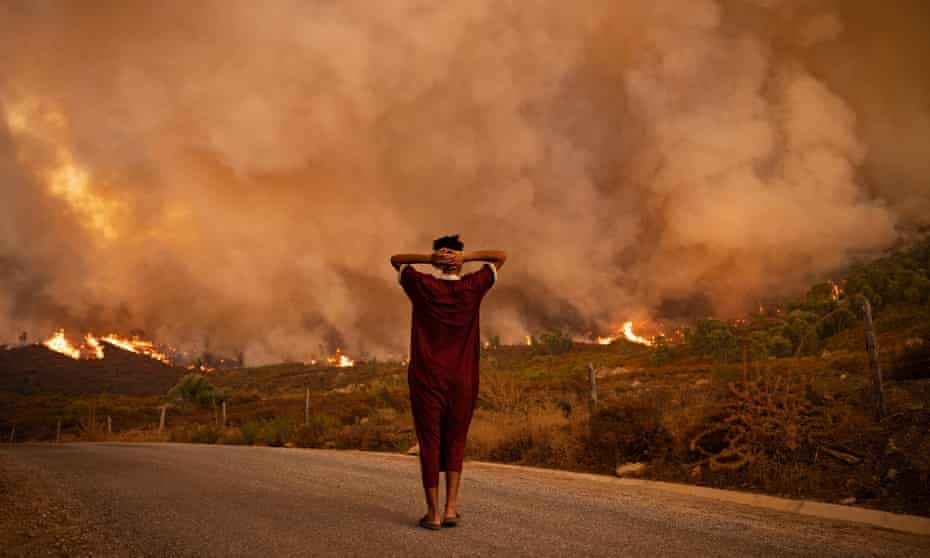IPCC issues ‘bleakest warning yet’ on impacts of climate breakdown

Report says human actions are causing dangerous disruption, and window to secure a liveable future is closing
Climate breakdown is accelerating rapidly, many of the impacts will be more severe than predicted and there is only a narrow chance left of avoiding its worst ravages, the Intergovernmental Panel on Climate Change (IPCC) has said.
Even at current levels, human actions in heating the climate are causing dangerous and widespread disruption, threatening devastation to swathes of the natural world and rendering many areas unliveable, according to the landmark report published on Monday.
“The scientific evidence is unequivocal: climate change is a threat to human wellbeing and the health of the planet,” said Hans-Otto Pörtner, a co-chair of working group 2 of the IPCC. “Any further delay in concerted global action will miss a brief and rapidly closing window to secure a liveable future.”
Droughts, floods, heatwaves
In what some scientists termed “the bleakest warning yet”, the summary report from the global authority on climate science says droughts, floods, heatwaves and other extreme weather are accelerating and wreaking increasing damage.
Allowing global temperatures to increase by more than 1.5C above pre-industrial levels, as looks likely on current trends in greenhouse gas emissions, would result in some “irreversible” impacts. These include the melting of ice caps and glaciers, and a cascading effect whereby wildfires, the die-off of trees, the drying of peatlands and the thawing of permafrost release additional carbon emissions, amplifying the warming further.
‘Atlas of human suffering’
António Guterres, the UN secretary general, said: “I have seen many scientific reports in my time, but nothing like this. Today’s IPCC report is an atlas of human suffering and a damning indictment of failed climate leadership.”
John Kerry, the US special presidential envoy for climate, said the report “paints a dire picture of the impacts already occurring because of a warmer world and the terrible risks to our planet if we continue to ignore science. We have seen the increase in climate-fuelled extreme events, and the damage that is left behind – lives lost and livelihoods ruined. The question at this point is not whether we can altogether avoid the crisis – it is whether we can avoid the worst consequences.”
The report says:
Everywhere is affected, with no inhabited region escaping dire impacts from rising temperatures and increasingly extreme weather.
About half the global population – between 3.3 billion and 3.6 billion people – live in areas “highly vulnerable” to climate change.
Millions of people face food and water shortages owing to climate change, even at current levels of heating.
Mass die-offs of species, from trees to corals, are already under way.
1.5C above pre-industrial levels constitutes a “critical level” beyond which the impacts of the climate crisis accelerate strongly and some become irreversible.
Coastal areas around the globe, and small, low-lying islands, face inundation at temperature rises of more than 1.5C.
Key ecosystems are losing their ability to absorb carbon dioxide, turning them from carbon sinks to carbon sources.
Some countries have agreed to conserve 30% of the Earth’s land, but conserving half may be necessary to restore the ability of natural ecosystems to cope with the damage wreaked on them.
Chance to avoid the worst
This is the second part of the IPCC’s latest assessment report, an updated, comprehensive review of global knowledge of the climate, which has been seven years in the making and draws on the peer-reviewed work of thousands of scientists. The assessment report is the sixth since the IPCC was first convened by the UN in 1988, and may be the last to be published while there is still some chance of avoiding the worst.




Geen opmerkingen:
Een reactie posten